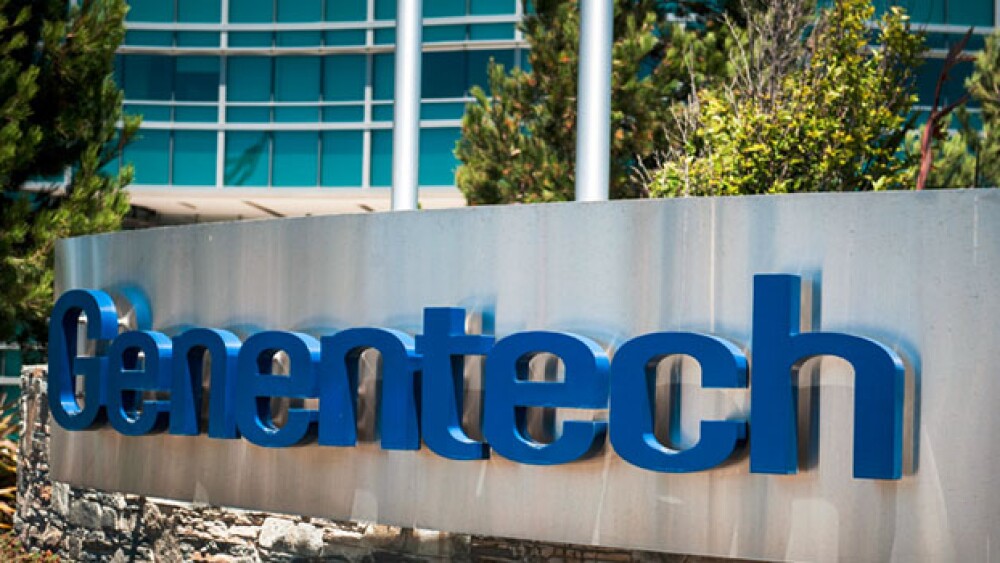The U.S. Food and Drug Administration (FDA) granted Genentech, a Roche company, Breakthrough Therapy Designation for Hemlibra (emicizumab-kxwh) for hemophilia A without factor VIII inhibitors.
The U.S. Food and Drug Administration (FDA) granted Genentech, a Roche company, Breakthrough Therapy Designation for Hemlibra (emicizumab-kxwh) for hemophilia A without factor VIII inhibitors.
The designation was based on results from the Phase III HAVEN 3 clinical trial. In that study, patients received the drug subcutaneously every week or every two weeks. Those receiving the drug showed a reduction in treated bleeds compared to the group that did not receive prophylactic treatment. And within the group receiving Hemlibra, the once-weekly group had statistically significant and clinically meaningful reduction in treated bleeds.
The drug was originally granted Breakthrough Therapy Designation in September 2015. It was approved by the agency in November 2017 for routine prophylaxis to prevent or decrease the frequency of bleeding episodes in adults and children with hemophilia A with factor VIII inhibitors.
Inhibitors refers to autoantibodies that are directed toward specific proteins in the body. In other words, the body is attacking specific proteins that are involved in blood clotting.
Hemlibra is a bispecific factor IXa- and factor X-directed antibody designed to bring together factor iXa and factor X. These proteins are necessary to active natural blood clotting.
“Hemlibra is the first medicine to show superior efficacy compared to factor VIII prophylaxis, the standard of care for people with hemophilia A without inhibitors, in an intra-patient comparison,” said Sandra Horning, Genentech’s chief medical officer and head of Global Product Development, in a statement. “We look forward to working with health authorities to make Hemlibra available to people without inhibitors as soon as possible, and we are excited to share this news with the community as we join in celebrating World Hemophilia Day.”
It was only about two weeks ago that Roche, Genentech’s parent company, announced that five patients being treated with Hemlibra had died, although the company stated the drug was not the cause of the deaths. Both the Hemophilia Federation of America (HFA) and the National Hemophilia Foundation (NHF) issued alerts.
Roche told Reuters, “To date, five adults taking Hemlibra have passed away. For all, the treating physician or investigator’s assessment was that the cause of death was unrelated to Hemlibra.”
One of the patient deaths was reported in 2017. The patient had refused a blood transfusion for religious reasons. One died in 2016, who was participating in a compassionate-use program. Another died in 2017. Two died in 2018.
Adverse events from the therapy include thrombotic microangiopathy, which is damage to organs’ blood vessels. Hemlibra has a price tag of about $450,000 pear year and has the potential to reach $5 billion in annual sales.
David Steinberg, an analyst with Jefferies, told Reuters in late-March, “With very limited information, it is unclear if there are additional safety concerns with Hemlibra at this point. However, it’s a possibility that heightened concerns—which arose after the initial death… —could re-emerge.”
Today, April 17, is World Hemophilia Day, whose theme this year is “Sharing Knowledge Makes Us Strong.” It was first observed in 1989.
There are two types of hemophilia, hemophilia A, due to factor VIII deficiency, and hemophilia B, due to factor IX deficiency. Hemophilia A is more common. About 1 in 10,000 people are born with hemophilia, which affects about 400,000 people worldwide.
“The World Federation of Hemophilia (WFH) has a long history of collecting data and sharing knowledge,” said Alain Weill, president of WHF in a statement. “The WFH World Bleeding Disorders Registry (WBDR) is an example of how data collection will be used to advance the understanding and care of people with hemophilia worldwide. An accessible patient registry strengthens our capacity to identify, diagnose, treat, and care for people living with hemophilia and other rare inherited bleeding disorders.”





